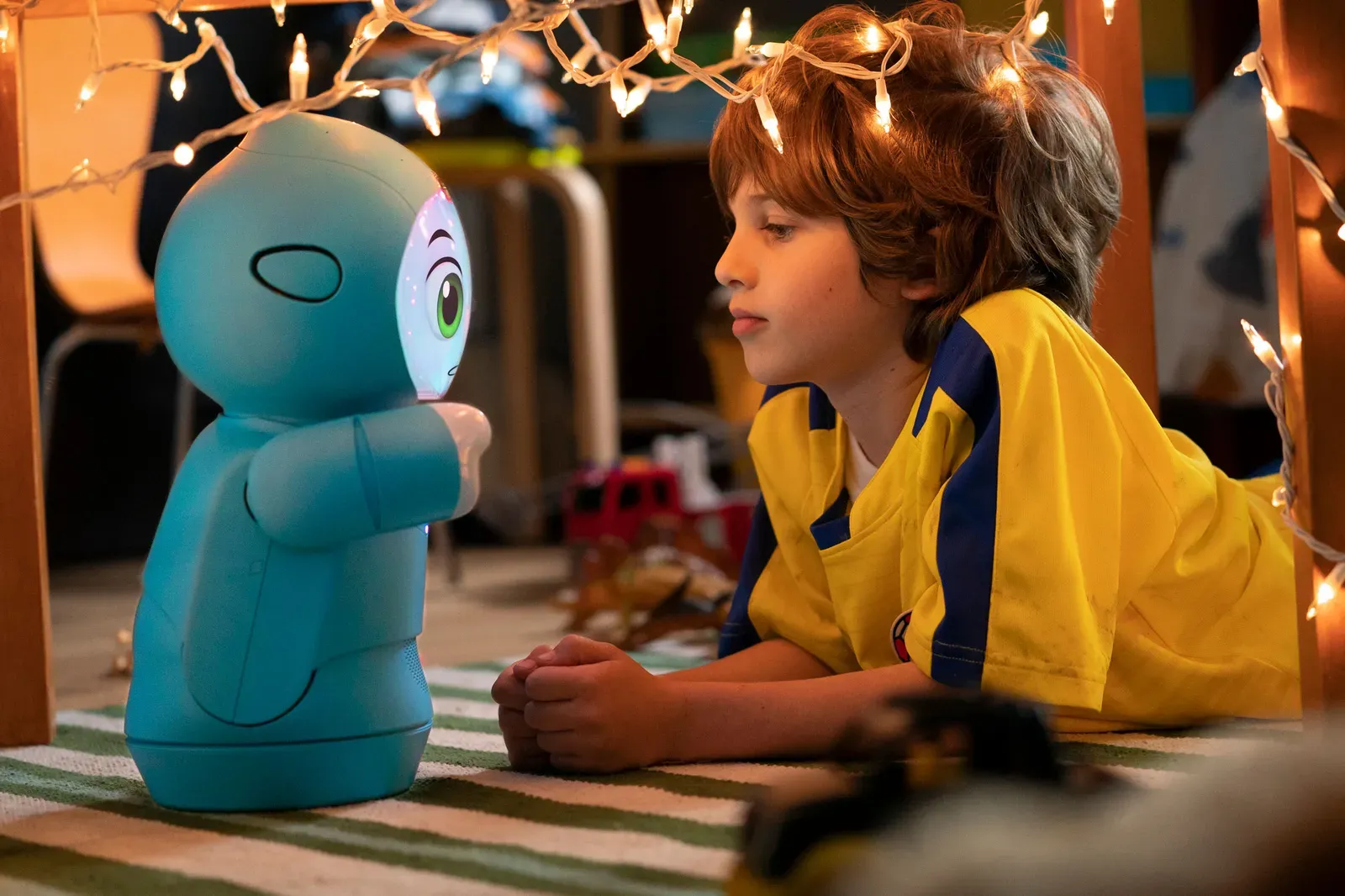Don't Buy Your Child a Robot Friend

by Tynan Stewart
Have you ever thought, "My child is not properly optimized. They lack soft skills and are falling short of their cognitive, social, and emotional developmental goals. How can I upskill them so they thrive in today's competitive childhood environment?"
If this sounds like you, congratulations! You fit the ideal market demographic for a $1,500 AI-powered friendship robot.
So open your wallet and say hi to Moxie, a "revolutionary" (???) teal-colored, animatronic device with a Pixar-esque face that plays games with children, created by a Pasadena-based tech company that wants to build "emotionally intelligent robotic companions that improve care and wellness and enhance our daily lives." Like most companies that are dicking around with artificial intelligence, they don't seem to have stopped to ask themselves a crucial question: Does anyone actually want this?
No matter. The company is wrestling with Big Questions (TM) about the relationship between body and mind. Mainstream publications are featuring their toy robot in Very Serious philosophical-minded stories. The company founder is going around saying stuff like: "We literally have the potential to help the next generation of children have much higher EQ and the soft skills that will help them grow to healthier, more balanced people in society.” In other words, this company is promising to make your child into a more successful human.
Moxie has “themes”—whatever that means—which include kindness, friendship, empathy and respect. According to the founder: “Children are tasked to help Moxie with missions that explore human experiences, ideas, and life skills,” which definitely sounds like how real humans with human experiences talk about playtime.
Here’s what I’ve concluded from my research: Moxie's not a friend; it's a tool for more precisely calibrating your child into an achievement machine. It will allegedly teach them “turn taking, eye contact, active listening, emotion regulation, empathy, relationship management, and problem solving.” It will train them to efficiently make optimal contact with ideal friend specimens of their own age. It will help establish the sophisticated emotional intelligence matrix needed to write the perfect college admissions essay. Never too early to start gaming your application to Harvard!

It's also clear, from the public relations, that this machine is meant to fix your broken, stupid, insufficiently algorithmically-integrated parenting style too. Not sure how to comfort your kid after their dog dies? Unable to coerce them into the proper level of enthusiasm for kindergarten? Not to worry: "Moxie’s eyes can move to console you for the loss of your dog, and it can smile to pump you up for school," reports the New York Times. You heard right: ITS EYES. CAN. MOVE. That dead dog problem is solved.
Moxie's original announcement video engages in what I can only describe as negging of parents. It stars a functionally comatose kid named Riley who initially does nothing but sit in his dim bedroom and swipe sadly on his tablet. His parents enter, clearly regretting both their decision to give him an iPad and their failure to install lights in his room. But they were smart enough to buy him a Moxie and the robot accomplishes what they cannot. Immediately Riley is more in touch with the world and, following instructions from Moxie, even starts hiding kind notes for his parents, like one in the kitchen that reads "I LOVE YOU MOM" with a smiling yellow sun. The subtext is clear, if not very subtle: Shell out for a Moxie and maybe your kids will start loving you.
Perhaps you don't want to hear from me, a childless 20-something, about parenting advice. I get that. But I'm also a lifelong reader of science fiction, and as such I do have authority to talk about robots, and I can tell you that it is a bad sign when your company's “What to Expect With Moxie” page reads:
"Will my kids be scared to use Moxie?"
"Will Moxie spy on me?"
"Is AI good for kids?"
└[∵┌]└[ ∵ ]┘[┐∵]┘




Comments ()